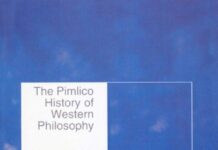
Ebook Info
- Published: 2013
- Number of pages: 149 pages
- Format: PDF
- File Size: 1.38 MB
- Authors: Richard H. Popkin
Description
This authoritative new introduction draws on both Richard H. Popkin’s unparalleled scholarship and a wealth of historical and philosophical sources to highlight the real influences behind Spinoza’s thought. Popkin reconstructs Spinoza the man, and his theories, contrasting these findings with some of the popularity held misconceptions. Locating him within the context of his family and background, the author assesses the impact on Spinoza of everything from his infamous excommunication, to his affection for Euclidian geometry and the work of Descartes. With a full account of Spinoza’s groundbreaking Tractatus and Ethics, and an overview of his influence on both of his contemporaries and those who were to folow, this concise survey offers a variety of new perspectives, and will be warmly welcomed by students, scholars and interested readers alike.
User’s Reviews
Reviews from Amazon users which were colected at the time this book was published on the website:
⭐Great book, easy, flowing, fast read. Lot’s of fun. A lot of biographical details on Spinoza. Not too much philosophical material. The picture that the author paints is that a lot of what we “know” about Spinoza biographically is uncertain. There are several sides and stories to numerous episodes in his life, like the excommunication, or possible meeting with the French prince, whatever his name was. It was interesting to read of the likely connections between Spinoza’s metaphysics and the kabbalistic ideas of Abraham Herrera. Also it is cool how Popkin tries to deflate a bit Spinoza’s saintly reputation. Popkin was head over heels into skepticism and a lot of what is written here comes across as, well, we don’t really know this about Spinoza, or that’s what people say about Spinoza but we don’t really know that..
⭐Richard Popkin’s carefully researched book makes the reader realize that much of what he may have read or heard about Spinoza is really glib and uninformed, no matter how erudite the source might seem.Popkin doesn’t write polemically, but his precise attempts to document what we think we “know” about Spinoza cast a complex and surprisingly different light on the philosopher. Also surprising is the fact that Popkin’s book is rather brief and easy to read. He is able to get to each of his points without needless embellishments, as he is a clear and straightforward writer.
⭐I recommend this book as a basic item for anyone interested in Spinoza’s thought.
⭐Spinoza, the most certain of philosophers, by the distinguished historian of skepticism, R.H. Popkin, sets up an interesting dynamic. Can we know anything ‘sub specie aeternitatis’ or is all knowledge historically and temporally conditioned? Perhaps the historical figure of Spinoza has the answer.
⭐This is an elegant little book, mostly about Spinoza’s life and times. There is hardly any philosophy in it (the Ethics is summed up in a few pages), but what there is is very deftly done (the Ethics is placed in the context of a review of neo-Platonic/kabbalistic emanationism). The best thing about it is the judicious discussion of the complex Jewish and Dutch history of the period, and the strange array of new believers of various sorts who probably/possibly intersected with Spinoza.This is not the book I would give to anyone who wants to work through the philosophy, but, as mentioned already, it is good on the life and times; and the references to various recent articles and books on the context of Spinoza are valuable.
⭐Richard Popkin’s short book is the best introduction to Spinoza on the market today, for students, academics, or those with a general interest in Western philosophy and intellectual history. It clearly explicates the more difficult aspects of Spinoza’s philosophy, but more importantly, locates Spinoza’s thought in his own time and context: a hybrid tradition of Jewish thought, millenarian politics, and seventeenth-century Cartesianism.Popkin’s work is also remarkably up-to-date, displaying familiarity with the latest international Spinoza scholarship. It is fair to the most current arguments, but displays a certain skepticism — no surprise from this historian of skepticism — to claims to have closed the book on the more controversial aspects of Spinoza’s thought and legacy, chief among them his excommunication from the Amsterdam synagogue.Finally, what is most striking and useful about this short book, is that Popkin’s elaboration of Spinoza’s life and context is not at the expense of showing the philosopher’s continuing relevance to modern thought. Especially in contrast to other Spinoza introductory texts — chief among them Roger Scruton’s — Popkin does not present Spinoza as a dead-end, and thus nothing more than a historical curiosity. Rather, he is a challenging and provocative thinker who repays continued reading. Readers of this book will be inspired to explore Spinoza’s texts for themselves.
⭐Private study.
Keywords
Free Download Spinoza (Oneworld Philosophers) in PDF format
Spinoza (Oneworld Philosophers) PDF Free Download
Download Spinoza (Oneworld Philosophers) 2013 PDF Free
Spinoza (Oneworld Philosophers) 2013 PDF Free Download
Download Spinoza (Oneworld Philosophers) PDF
Free Download Ebook Spinoza (Oneworld Philosophers)


